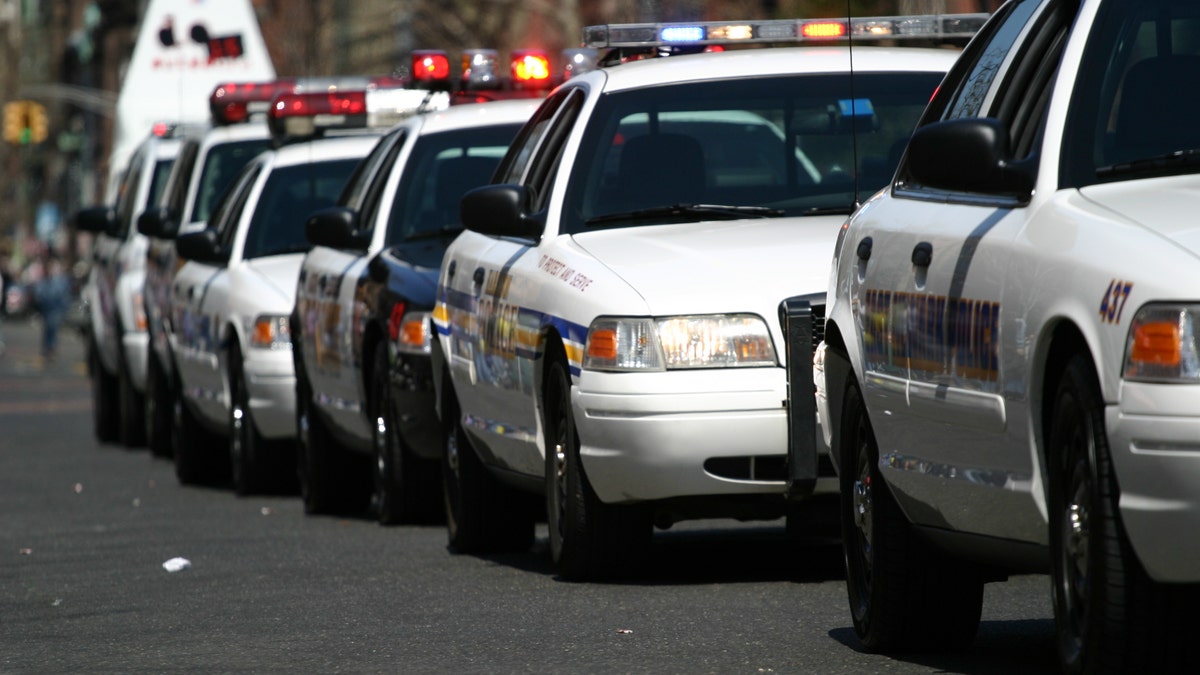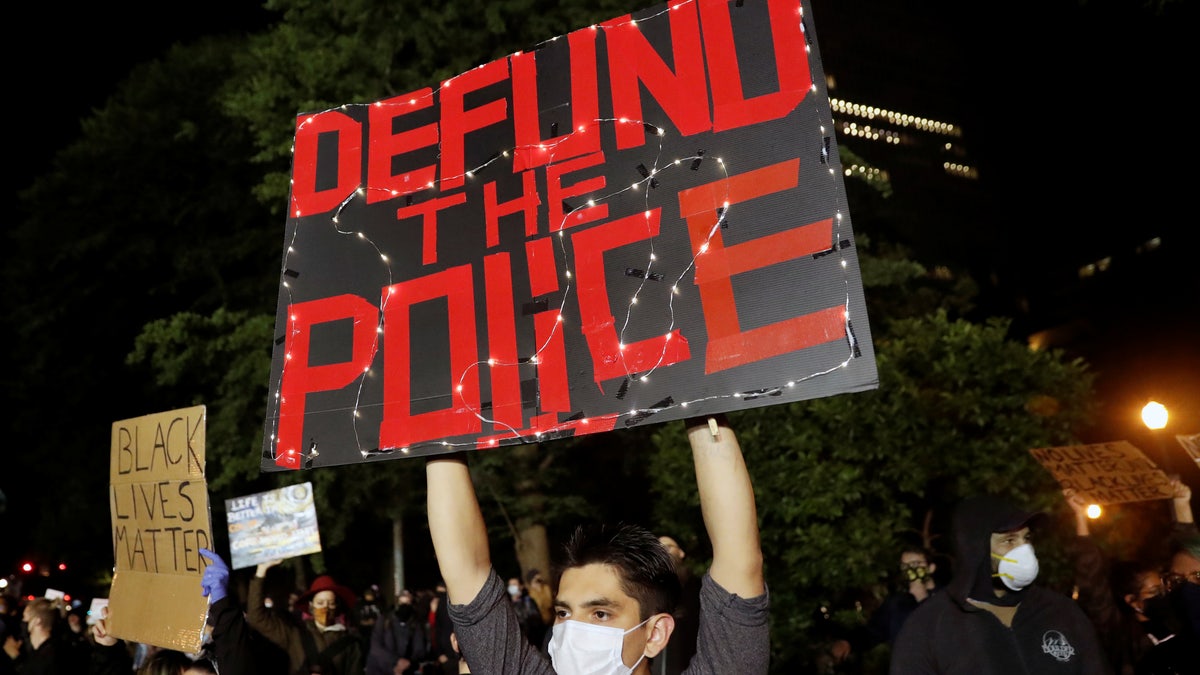Reverend warns 'demonization' of law enforcement is hurting disadvantaged communities
Rev. Markel Hutchins of Faith & Blue blasts the media narrative that's leading to the 'demonization and demoralization' of police officers.
Goodhue, Minnesota, made national news in August when the small town's entire police force resigned and the local police chief said he'd had "zero" applicants following the resignations. Experts say it's indicative of how law enforcement has been treated the past few years.
Goodhue Police Chief Josh Smith told city officials that he could not find anyone to sign up to join the police force.
"This has been three weeks now, we have zero applicants, and I have zero prospects," Smith said on July 26. "I’ve called every PD around for the youngest guys out there, getting into the game. There's nobody getting into the game."
ENTIRE POLICE DEPARTMENT RESIGNS IN MINNESOTA CITY, LEAVES MAYOR ‘BLINDSIDED’: 'ZERO APPLICANTS'
Goodhue Mayor Ellen Anderson Buck told local news they felt "blindsided" by the exodus. But some former police leaders and activists say that recent trends have shown them that this "crisis" has been coming for some time.
"I can tell you firsthand the biggest challenge that we hear over and over and over from law enforcement executives is that they cannot hire, and they also cannot retain the officers that they have," Rev. Markel Hutchins, founder of MovementForward and Faith & Blue, which aims at building relationships and bridging gaps between communities and police, told Fox News Digital. "We have a real crisis in this country, but it's not a crisis that will be overcome without a shift in culture and a shift in conversation. The demonization and demoralization that law enforcement professionals have faced over the last several years is what Dr. King called the vocal minority."

Police departments across the country have been hemorrhaging officers. (frankysze via Getty Images)
Goodhue isn't the only town facing police shortages. Former police officers and activists say low pay and even lower morale can account for why the police profession is currently so unappealing. The size of the police force in Washington, D.C., reached a half-century low, April reports found, while a Minneapolis Star Tribune analysis showed that the Minneapolis Police Department dropped to its lowest staffing level in four decades in August.
Officer resignations were up 47% last year compared to 2019 and retirements are up 19%, according to a survey of nearly 200 police agencies by the Police Executive Research Forum, a Washington, D.C.-based think tank, NBC News reported. The survey, the outlet noted, represents only agencies affiliated with PERF, a fraction of the thousands of law enforcement agencies across the country.
With the year 2020 came the COVID-19 pandemic and the death of George Floyd. Floyd died in police custody after officer Derek Chauvin placed his knee on the Black man's neck for almost nine minutes. Chauvin was later sentenced to 3.5 years in prison, but not before violent protests erupted in major cities across the country.
Hutchins argued America has forgotten the message that Martin Luther King, Jr., and countless other civil rights leaders espoused.
"The mantra and the mission was not to defeat anyone, but it was to make America live up to her highest ideals," Hutchins told Fox News Digital.
"In 2020, when I began to see people on one corner yelling, ‘Our lives matter,’ people on a different corner yelling a different message around, 'Our lives matter,' I knew that we were going in the wrong direction because we've never progressed," he continued. "When we separate or segregate ourselves from one another, if we are to see officer involved tragedies reduced, if we are to see crime reduced, if we are to see the attacks and an assassination on the character and the quality of law enforcement improved, it will be because communities and law enforcement come together."
"We've seen the demonstrations and the protests over the last several years that don't seem to have improved the circumstances," he continued. "We continue to see an increase in officer involved tragedies. We continue to see an escalation in tensions. We continue to see a reduction in law enforcement force. People don't want to join the profession, so no one is winning. So we decided to take a distinctly different approach and actually build bridges between law enforcement and communities in an environment where there seemed to be such an interest in dividing police from the communities they serve."
MINNESOTA GOP LAWMAKER RESPONDS AFTER ENTIRE POLICE DEPARTMENT RESIGNS IN SMALL TOWN: ‘DEMORALIZING’
Charles Adams, a former Minneapolis cop and high school resource officer, said the police profession is just not that "appealing" at the moment.
"It goes to the point of is not an interest profession that people want to be that are interested in it," Adams told Fox News Digital. "It's not appealing. And a lot of people don't want to be in a situation where they can continue to be scrutinized, or they can get in trouble for doing something that they're supposed to do… But it also goes back to my first statement of, this job is not - people don't consider this job as the service piece. It's more of the enforcement piece. And people are avoiding being in those type of situations."
Lon Bartel, a director of training and curriculum for law enforcement at VirTra, and a former Arizona cop, said the root of the issue is both poor public perception of the police and financial incentives.
Pay and benefits, he said, are "always a consideration for officer applicants."
"It is a tough job if the job that at any given time, an injury could cause you to have to no longer be able to do it," Bartel told Fox News Digital. "And those injuries are not just physical. Those injuries are also psychological because of the sheer amount of trauma that law enforcement officers get into facing, it's a high risk. So having a big competitive wage is important. The flip side of that, sometimes you get what you pay for. So what do you want? Do you want the best of the best - you might have to pay a little more for it, or do you want mediocrity? And if you're okay with mediocrity running around carrying a gun and making life or death decisions, just be aware what that means."
Like Hutchins, Bartel regretted how police have been portrayed in the media.
"The problem is the environment that they have to do it - it's not the out in the road that's problematic," Bartel told Fox News Digital. "It's the lack of support from a political perspective and even from a media perspective, that law enforcement community as a whole just doesn't feel supported."
He regretted the common urge to generalize all cops after a string of high profile "bad cop" incidents. The statistics, he said, show that most officers are trying to do the right thing.
"Politically, law enforcement officers are vilified," Bartel said. "If you take into account that, you know, some of the estimates that there has been over 10 million police contacts in a year, and you have one or two high profile incidents with law enforcement where maybe an officer violated somebody's rights or, you know, they end up engaging in illegal behavior that killed somebody, that everybody paints law enforcement with a broad brush. And it's like, wait, no, over 10 million contacts. 'Okay, you're going to throw me in with that one guy on another side of the country who did something that bothers the hell out of me as a cop?' Because reality, nothing makes a cop angrier - cops hate nothing more than a bad cop."

Protesters rally against the death in Minneapolis police custody of George Floyd, in Portland, Oregon, U.S. June 13, 2020. (REUTERS/Terray Sylvester)
Hutchins implored police and community members to "lean into their differences." Hutchins' organization will be hosting a national "Faith & Blue Weekend" from October 7-10 which will focus on locally organized community-officer engagement. The events, scattered in several cities throughout the country, will allow police officers to share a cup of coffee, meals and conversations with members of the community they've pledged to protect. Other events will feature prayer services and sports. One get together in West Memphis, Arkansas, called "Kickin it with a cop" is advertised as "a kickball event that will give officers and the community time to bond."
Bartel offered his own specific suggestions for improving community relationships, imploring community members to get a better understanding of how and why officers sometimes need to use physical force when called on the scene. He referenced organizations like Force Science, which offer education training work specifically on those aspects of those realities so that communities can get a more "realistic perspective of what the law enforcement profession actually has to do."
Adams said improving police-community relations requires an investment.
"It's easier to do when you have an investment," he said. "And so like me, in my family, we have a vested interest in the community that we serve because that's where we came from. But also, it's a collaboration. I mean, you got so many situations where officers are in bad situations because of control and because of - to enforce the control that they have within their job. The minute that you are able to realize that the community supports you, and you're there to help them and work together, that's when that thought process changes."
"And once we can get to the point of law enforcement officers being an accessory in the resources to the community, then you probably see more people wanting to be cops and be a part of the police community," he added.
CLICK HERE TO GET THE FOX NEWS APP
For more Culture, Media, Education, Opinion, and channel coverage, visit foxnews.com/media.


